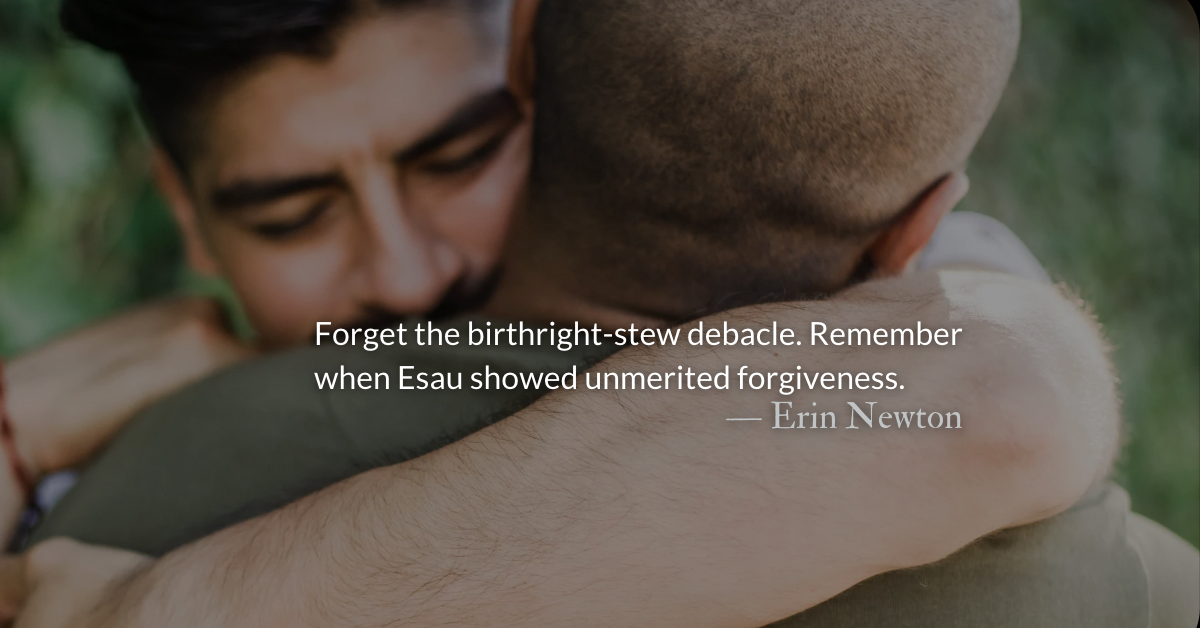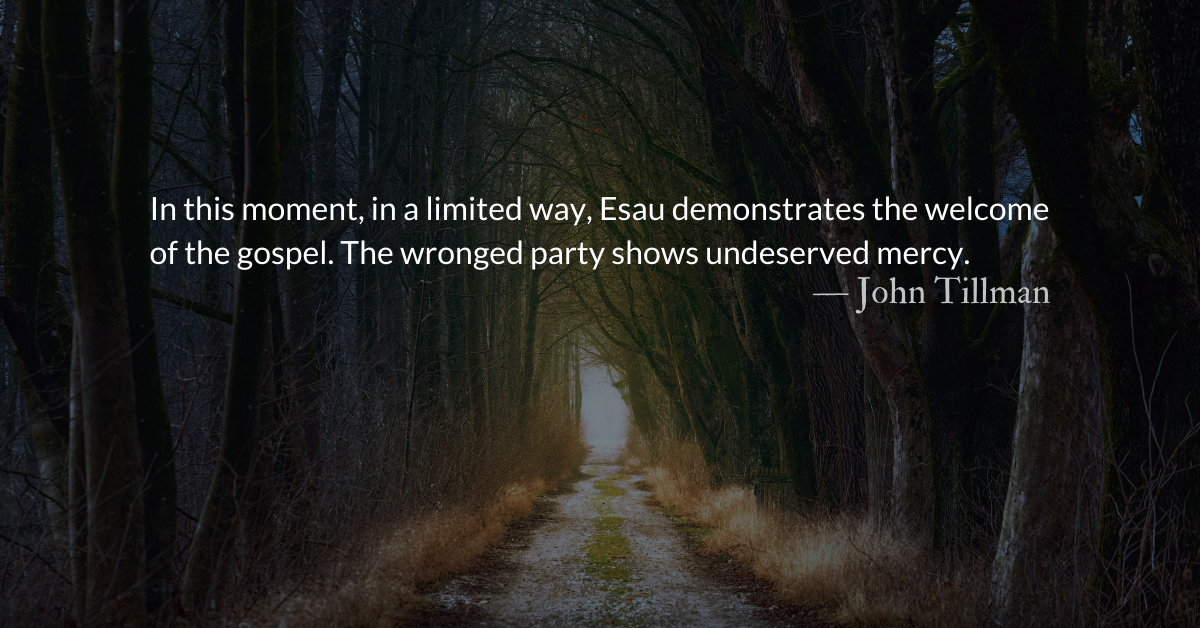Scripture Focus: Genesis 33:3-4
3 He himself went on ahead and bowed down to the ground seven times as he approached his brother.
4 But Esau ran to meet Jacob and embraced him; he threw his arms around his neck and kissed him. And they wept.
Reflection: Spiritual Twins
By Erin Newton
Before 2016, when I read the story of Jacob and Esau, I thought the note about their twin birth was a random fact. After having twins of my own, I’ve had a front-row seat to their unique relationship. Like brothers, they are the best of friends and, sometimes, the worst of friends. Despite the quarrels, they are closer than any other.
Jacob and Esau are usually thought of as enemies. One loved, one unloved. Israel versus Edom. Jacob was the trickster and Esau was impulsive. In the New Testament, Esau is always labeled for his quickness to sell his birthright for a meal. A poor choice, to say the least, but he did something more memorable.
Esau was angry enough to kill Jacob. But time had passed. Jacob had been the victim of someone else’s trickery. God allowed Jacob to learn his lesson from Laban’s hand, instead of vengeance from Esau.
Forget the birthright-stew debacle. Remember when Esau showed unmerited forgiveness. He loved his brother. He ran to him. He hugged him. He wept. The reunion of Jacob and Esau is a picture of brotherly love.
Both brothers humbled themselves. Esau laid aside his grudge. Jacob laid aside his pride. Time healed some of the wounds, but humility brought peace.
When Esau saw the face of Jacob and Jacob looked at the face of Esau, they saw themselves. Twins. Sure, Esau’s a bit hairier than Jacob but they share the same genes. Both were sons of Isaac and probably looked like their father.
My twins are identical, but you’d never know it. There was a problem in the womb, and now the scars and diagnoses create a visible distinction. But technically, each twin is a perfect donor match to the other. They can heal one another if needed. A better “eye for an eye.”
The Bible calls believers “brothers and sisters” in Christ. We are a kind of identical, spiritual twins. We have different scars, our environment shaped us differently, but we’re bonded together. We see each other and see ourselves, as children of the Father.
Look into the faces of those around you. Your friends and your neighbors, the barista and the doctor, a child with disabilities, and an octogenarian with a walker—these people reflect the image of your Father.
Grudges and pride must die. Run. Hug. Weep. These people are your brothers (and sisters). One God, Father of all (Eph 4.2-6).
Divine Hours Prayer: The Call to Prayer
Worship the Lord in the beauty of holiness; let the whole earth tremble before him. — Psalm 96.9
Today’s Readings
Genesis 33 (Listen 2:59)
Mark 11 (Listen 3:59)
Read more about Running to Forgive
A prodigal son approaches home…limping…fearful of rejection…the wronged party embraces him and kisses him. It’s Esau running to meet Jacob.
Read more about From Esau to Jacob
We are not hated. We are loved. This is demonstrated in Christ as God turns “Esaus” into “Jacobs.”



